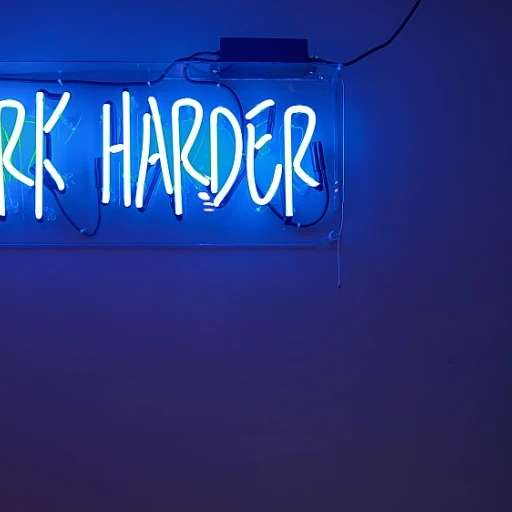Understanding DEI: More Than Just Buzzwords
Decoding DEI: A Broader Perspective
Diversity, Equity, and Inclusion, often abbreviated as DEI, is a term that's gaining significant traction in the corporate world. However, to truly understand its essence, it is vital to move beyond seeing it as merely a trend or a checkbox activity. DEI embodies a framework aiming to foster a more inclusive working environment that recognizes the value of varied perspectives and ensures fair treatment for all employees. This goes beyond just fulfilling quotas or compliance measures. A deeper understanding of what DEI stands for can be instrumental in shaping organizational culture and promoting a sense of belonging among team members. In this context, recognizing the nuances of DEI can provide insight into how it moves from being mere jargon to a strategic advantage. For those looking to delve deeper into this concept, our comprehensive exploration of DEI in the workplace offers valuable insights. This guide explores the theoretical underpinnings and practical applications in today's corporate landscapes. The topics of diversity, equity, and inclusion are timely, and understanding their intricacies is crucial for fostering not only a positive work environment but also driving effective business strategies. As we further explore this topic, the following sections will illustrate how embracing DEI can lead to substantial business growth and highlight real-world success stories of organizations implementing these initiatives effectively. By laying down this foundational knowledge, businesses can start to see DEI not as a one-time initiative but as an ongoing process that is integral to their overall strategy and success.The Business Case for Diversity: Why It Matters
The value of diversity in unlocking potential
Diversity is not just a feel-good factor or a moral obligation for companies. It's a business imperative. When companies embrace a diverse workforce, they tap into an array of perspectives that enhance creativity and innovation. These new ideas can lead to more effective problem-solving and a stronger adaptability, critical for staying competitive in today's fast-changing market. Companies that prioritize diversity are better positioned to understand and serve diverse markets. They speak the language of various consumer segments, making it easier to attract and retain customers. By reflecting the communities they serve, businesses not only earn trust but also open doors to new discovery. Furthermore, numerous studies have consistently shown the correlation between diverse teams and improved profitability. Companies that integrate diversity into their strategic plans see tangible returns on investment through revenue growth, better decision-making, and increased employee engagement. In today’s business environment, ignoring the diversity quotient could mean missing out on a critical competitive edge. For a deeper understanding of how engaging with DEI can set the stage for innovation and performance, take a look at our exploration of what DEI stands for by following through on this journey through diversity, equity, and inclusion.Building trust through equitable practices
Equity is the backbone that supports diversity in organizations. It's not enough to have a diverse workforce; companies must ensure that everyone has equal access to opportunities, resources, and the support they need to succeed. When employees perceive fairness in promotion, compensation, and growth opportunities, they are more likely to be motivated and committed to the organization's success. Organizations that prioritize equity create a more harmonious workplace where all employees feel valued and empowered to contribute to their fullest. This engenders an atmosphere of trust and mutual respect, foundational attributes for fostering collaboration and reducing turnover rates. Ultimately, equitable practices strengthen the cohesion of teams and encourage a culture where every voice is respected and heard. As companies learn from their challenges and learn to address missteps along the way, they often evolve their understanding of equitable principles in the business sphere. These lessons are what propel them towards creating inclusive environments that accommodate varied experiences and remove systemic barriers to success.Real Stories: Companies Thriving with DEI Initiatives
Success Stories: Companies Embracing DEI
The narratives of businesses that have successfully incorporated DEI strategies are as varied as they are inspiring. These stories not only validate the importance of diversity, equity, and inclusion in the workplace but serve as a compelling testament to their impact on the bottom line and company culture. Let's explore a few examples that highlight real-world triumphs. One such company, which has set a benchmark in the industry, is renowned for its comprehensive DEI strategy that goes beyond token measures. This organization understood early on that diversity wasn't just a tick-box exercise but a valuable asset. By cultivating an environment where each employee feels heard and respected, they have built a robust, innovative team that thrives on collaboration and unique perspectives. Another success story comes from a leading tech firm that recognized the correlation between DEI and enhanced problem-solving abilities. Their approach involved deliberate policy changes, fostering an inclusive atmosphere where employees are encouraged to bring their authentic selves to work. This strategy has not only enriched their product development process but has also led to a significant increase in employee satisfaction and retention. The retail giant that championed a similar mission focused on diversity as a critical factor in their business model. They implemented company-wide training programs to ensure that every team member understood DEI principles. This commitment has not only improved their internal dynamics but has also reflected positively on their customer engagement and brand loyalty. For organizations seeking to replicate such success, understanding and applying the secrets to boosting organizational efficiency is crucial. These examples illustrate more than just a moral imperative; they underscore how DEI initiatives can drive real growth and innovation, creating a workplace where everyone has the opportunity to succeed.Challenges and Missteps: Learning from Experience
Learning from Past Mistakes
Despite the promising benefits highlighted in previous segments, implementing diversity, equity, and inclusion (DEI) initiatives isn't without its hurdles. One often-repeated mistake is treating DEI efforts as standalone programs that do not permeate every level of the organization. This approach can lead to superficial changes that fail to create lasting impact. Organizations sometimes make the mistake of setting up DEI initiatives solely for compliance or public image, disregarding the essential cultural shift that needs to accompany these efforts. As a result, they may struggle with authenticity, which can lead to a lack of trust and engagement from employees and stakeholders alike. Unconscious bias, another significant challenge, can also derail well-meaning efforts. Despite training and awareness programs, biases can linger in recruitment, promotions, and daily interactions if not vigilantly addressed and rooted out. Moreover, many firms falter because they fail to back their DEI vision with adequate resources and clarity. While having a DEI statement is important, insufficient support and guidance can leave managers and teams floundering in their efforts to implement meaningful change. Organizations are increasingly recognizing that flexibility and growth are essential in DEI initiatives. This insight underscores the necessity of learning from any missteps, adjusting strategies as needed, and moving forward with renewed commitment. By recognizing these challenges and learning to navigate them effectively, leaders can pave the way for initiatives that truly embrace the principles of DEI and enhance organizational success. Those who persistently evaluate and refine their approach maintain resilience in the quest for equity and inclusion, ultimately transforming mistakes into stepping stones for growth.The Role of Leadership in Promoting DEI
Leadership Commitment: The Foundation of DEI Success
While a commitment to DEI (Diversity, Equity, and Inclusion) can be a game-changer for businesses, it starts at the top. Leadership plays a crucial role in setting the tone and paving the way for DEI initiatives. Executives and senior leaders must demonstrate their commitment to fostering an inclusive culture, actively promoting diversity, and ensuring that equity is ingrained in the company's operations. Leaders are not just figureheads; they are influencers within an organization. When they prioritize DEI, it signals to employees, partners, and clients that these values are integral to the company's mission and vision. This commitment cannot be superficial. It requires genuine interest, ongoing education, and consistent effort in promoting inclusive practices. When leadership teams immerse themselves in DEI training and engage in meaningful conversations, they become champions of change. Moreover, leadership involvement in DEI initiatives shows accountability. By holding themselves and others accountable, leaders help sustain momentum, ensuring that DEI is not just seen as a temporary project but a fundamental aspect of the company's identity. Accountability also encourages transparency, where progress and setbacks in DEI efforts are openly discussed, paving the way for continuous improvement. In fostering this inclusive culture, many companies have seen tangible benefits, such as increased employee satisfaction, greater innovation, and enhanced company reputation. Even though adopting DEI initiatives isn't without its challenges, the role of leadership remains pivotal in overcoming obstacles and learning from experiences to drive meaningful change.Future of DEI: Trends and Predictions
Embracing emerging trends to secure a competitive advantage
As we look towards the future, the evolution of diversity, equity, and inclusion (DEI) promises to be a defining element in the strategic development of forward-thinking businesses. This shift goes beyond ensuring a mix of genders, ethnicities, and cultures. It embraces a more holistic approach, considering aspects such as neurodiversity, socioeconomic diversity, and varying abilities. This wave of inclusivity is where the future of DEI lies, and companies should be prepared to ride it to remain relevant and competitive.Embracing new technologies and data analytics will play a pivotal role in advancing DEI initiatives. These tools enable organizations to gain deeper insights into employee demographics and experiences, assisting leaders in identifying potential areas of improvement with precision. The integration of artificial intelligence (AI) can further enhance DEI by eliminating biases in recruitment processes, ensuring that opportunities are truly based on merit and suitability.














